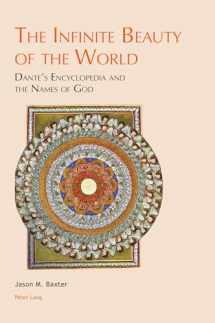
The Infinite Beauty of the World (Leeds Studies on Dante)
Book details
Summary
Description
This book proposes a radically new interpretation of the Comedy's encyclopedism by focusing on Dante's work in light of the medieval imago mundi tradition. The work opens with a discussion of how the Florentine poet transgressed every generic boundary in his effort to gather «into one volume» a vast and varied set of creatures, places, landscapes, historical and mythological persons, weather conditions, and arts. It then goes on to show that this extraordinary encyclopedic breadth should be understood in the terms of Boethian and Augustinian spiritual exercises of envisioning the whole world in the mind's eye, which themselves became the interpretive framework for the spiritual ends behind medieval encyclopedic texts. By bringing attention to Latin Platonism and twelfth-century authors (such as Alan of Lille, Bernard Silvestris, William of Conches, Hugh of St. Victor, and Thierry of Chatres), this book provides compelling new readings of the De vulgari eloquentia, as well as provocative insights into key figures (such as Brunetto Latini, Pier della Vigna, and Ulysses) and key passages (Purgatorio 28, Paradiso 26, and Paradiso 33).


We would LOVE it if you could help us and other readers by reviewing the book
Book review



